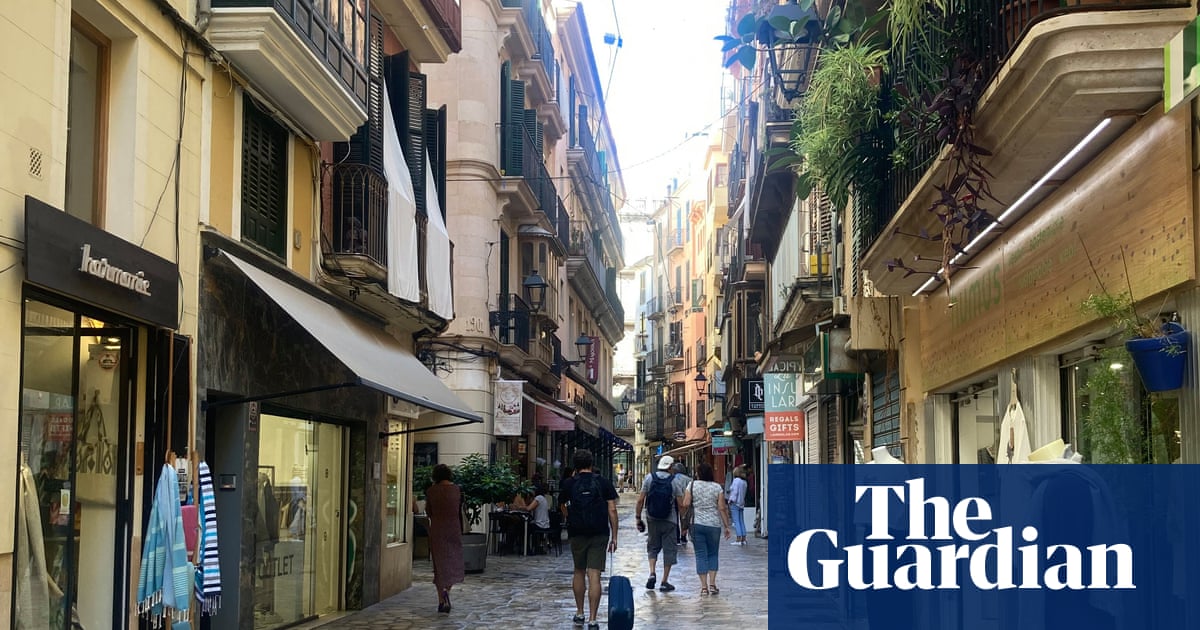
Growing up on Mallorca, Miquel Segura Aguiló, 78, felt like he was living in a “ghetto without walls” but could never understand why. “We knew we were different from everyone else but we didn’t know why,” he said. “When I asked my father, he was evasive. He never wanted to talk about it.”
The family were xuetes – one of Spain’s least-known Jewish communities – whose discrimination was in September formally acknowledged by the regional parliament of the Balearic Islands after centuries of persecution, disdain, shame and silence.
The xuetes are a relic of medieval Spain, a people unknown outside Mallorca until the 1930s. They are the descendants of the island’s Jews who converted to Catholicism 600 years ago – almost six decades before all Spain’s Jews were forced in 1492 to convert or face expulsion by the Catholic monarchs Ferdinand and Isabella.
The name comes from xueu, the Mallorquín for Jew, though also possibly from xulla (pig fat) as conversos were frequently obliged to prove that they had renounced their faith by publicly eating pork, prohibited under Jewish law.
Mallorca had a continuous and significant Jewish presence from the second century, thriving and tolerated under Muslim rule and after the Christian “reconquest” in 1229. However, after a series of anti-Jewish riots, Mallorca’s Jews were in 1435 forced to convert en masse to Catholicism.
Even so, persecution increased in the 17th century and in 1688 a group tried to flee by ship to England but a storm drove them back to port. The Spanish Inquisition was informed and 73 were found guilty, 45 condemned to death and three were burned alive in a ceremony attended by 30,000 of the island’s 100,000 inhabitants.
The names of those executed were hung on sambenitos (sheets) in the convent of Sant Domènech in Palma and these 15 surnames would mark their descendants out as the people who became known and shunned as xuetes: Aguiló, Bonnín, Cortés, Forteza, Fuster, Martí, Miró, Picó, Pinya, Pomar, Segura, Valls, Valentí, Valleriola and Tarongí.
For the next 300 years, until tourism opened Mallorca to the world, the devoutly Catholic xuetes were condemned to live mostly in a few streets of Palma, to work in a limited number of trades and, crucially, to marry among themselves.
There is little trace of them now among the sushi bars and souvenir shops in what was the Jewish quarter.
“The first time I knew I was a xueta was when I was about five and I called a little girl a xueta,” says the writer Pere Bonnín Aguiló. “My mother took me in and said ‘you can’t say that because you’re one too’.”
When Roberto Aguiló Bonnín, a retired printer in Palma, was a child, his community’s origins were strictly taboo. “I didn’t know what xueta meant and no one talked about it,” he says. “All I knew was that my family was stigmatised.”
“It was only when I was much older that I realised my ancestors might have been Jewish because so many households had a rocking chair, traditionally used to put yourself in a sort of emotional trance and for reading the Torah.”
On Saturdays, xuetes in Palma ostentatiously cleaned their houses to demonstrate they were not keeping the Sabbath, which is possibly the origin of fer dissabte (do Saturday), the Mallorquín for doing housework.
“As a group there was a lot of denial and shame and as a result they were extremely religious, by which I mean Roman Catholic,” says Joan Nadal, who grew up in Palma in the 1960s and 1970s. “They went to church more than anyone else.”
Despite being ostracised and obliged to intermarry, Segura says there was little sense of community, only a sense of them and us. “If you went out with a girl, the first question was, is she one of ours?”












